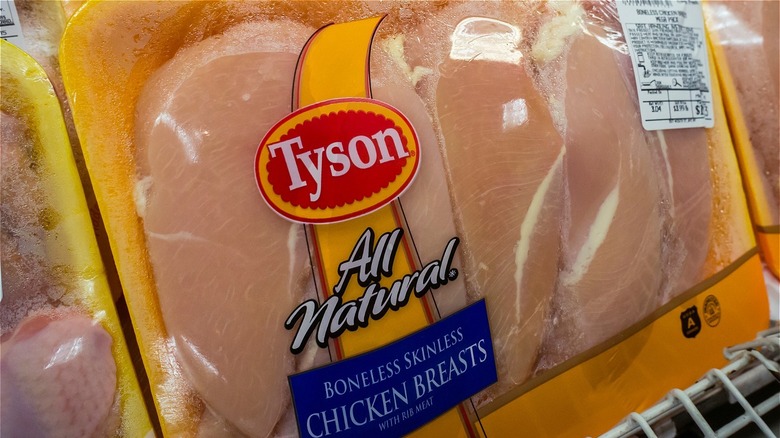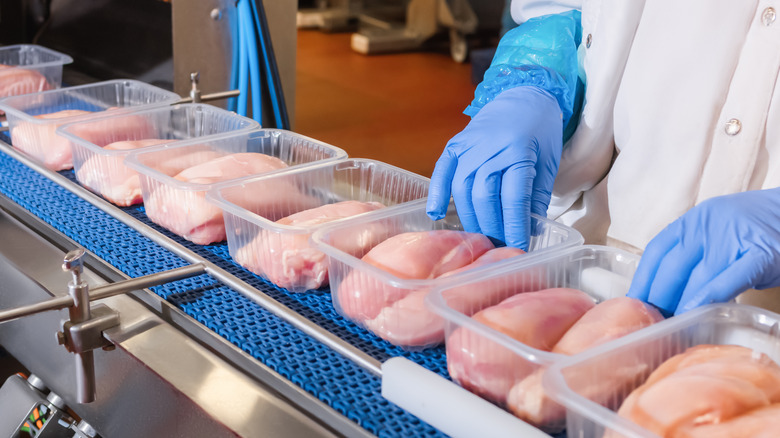Why The Poultry Industry May Be In Danger
Amid ongoing worldwide supply chain shortages, the American poultry industry is now facing another hurdle in the form of a bird flu outbreak. Per The Washington Post, the federal government has confirmed a number of outbreaks of a highly pathogenic form of bird flu, indicating that additional cross-country fowl infections could be found in the coming weeks.
The USDA findings indicate that commercial poultry operations in Indiana and Kentucky were two of the most recent sites of bird flu outbreaks in the first half of February. An avian flu outbreak was also detected in a backyard flock of mixed-species birds in Virginia.
These cases come in the wake of a recent flu outbreak on a turkey farm in Dubois, Indiana, which prompted the Indiana State Board of Animal Health to destroy a flock of 29,000 turkeys and create a 10-kilometer control area around the infected farm, per the Dubois County Herald.
According to Reuters, the U.S.'s largest poultry company, Tyson Foods, has also been hit by the influenza outbreak. An undisclosed number of birds from a flock of 240,000 chickens at one of the company's Kentucky-based facilities tested positive for the same strain of bird flu detected on the Indiana farm. Per state officials, all potentially infected birds were destroyed and removed from the food chain.
"Because the affected farm in Kentucky is only one of the thousands of farms that raise chickens for our company, the situation is not expected to impact our overall chicken production levels," Tyson Foods said to Mashed in a statement.
The current bird flu outbreak poses little risk to humans
"As part of existing avian influenza response plans, Federal and State partners are working jointly on additional surveillance and testing in areas around the affected flocks," the USDA said in a statement. "The United States has the strongest AI surveillance program in the world, and USDA is working with its partners to actively look for the disease in commercial poultry operations, live bird markets, and in migratory wild bird populations."
Despite the recent outbreak, the Centers for Disease Control and Prevention announced that the recent uptick in bird flu infections among wild birds and poultry poses a low risk to the general public. However, the CDC warns that poultry workers and other groups that come in close contact with large populations of birds could be at a higher risk of contracting the avian flu.
Humans can contract bird flu by getting the saliva or feces of an infected bird in their mouth, nose, or eyes. However, this scenario is extremely rare, as indicated by the fact that there have only been four human cases of low-pathogenic avian flu in the U.S. since 2002 (via CDC).
While the latest bird flu outbreak is unlikely to create a public health crisis, its impact on the American poultry industry — which is the top producer of poultry in the world — could create additional disturbances in an already unstable supply chain, resulting in further meat shortages nationwide, per The Washington Post.

